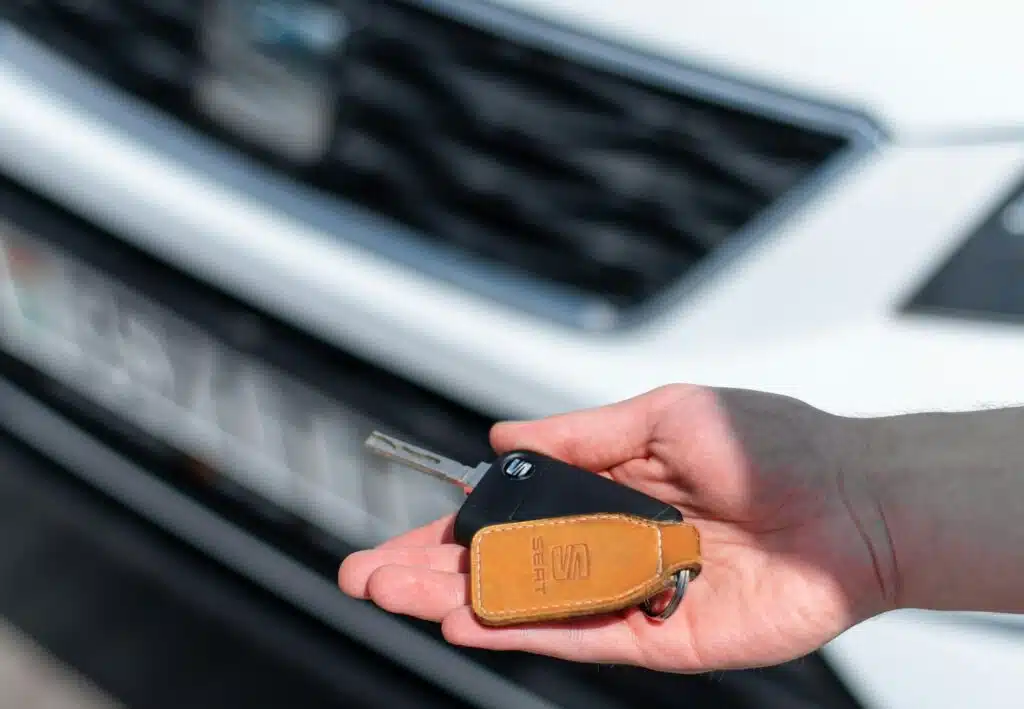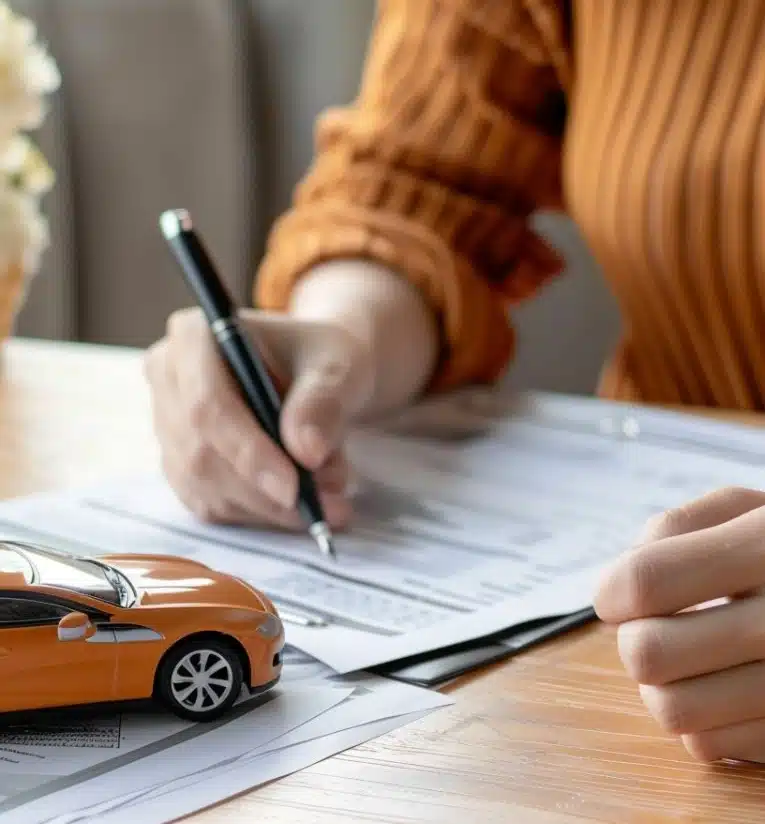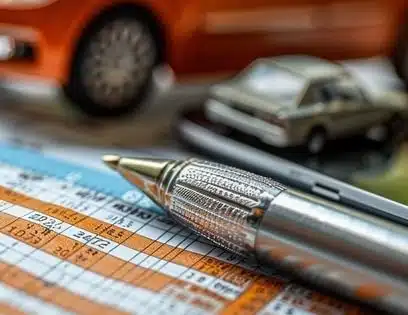When purchasing a vehicle, especially with the help of a loan, you may come across terms like “lienholder” and “lien on a car title.”
Understanding these concepts is essential because they have significant implications for ownership, auto insurance, and even the process of selling your car.
This blog explores the meaning of a lienholder, how it relates to your car title, and what it means for you as a vehicle owner.
By understanding these concepts, you can better manage your auto loan and ensure that you meet all the necessary requirements set by your financial institution and auto insurer.
What Is a Lienholder on a Car?
A lienholder is typically a financial institution or loan lender that has financed the purchase of your vehicle. When you take out a loan to buy a car, the lender places a lien on the car title as a form of security. This legal claim ensures that the lender has a financial interest in the vehicle until the loan is paid in full.
In simple terms, until you pay off the loan, the lienholder holds an interest in your car, which can have several implications for what you can and cannot do with the vehicle.
If you decide to sell your car before fully repaying the loan, you’ll need to involve the lienholder. The lienholder on a car title must be satisfied before you can transfer full ownership to another party. This means that the lender must be paid what is owed before the title can be cleared of the lien and transferred to a new owner.
Recommended Read: How Does a Car Title Loan Work in 2024?
What Is a Lien on a Car Title?
A lien on a car title is a legal claim that a lienholder has over your vehicle. This lien is registered with the state’s motor vehicle department and is noted on the car title itself. The lienholder retains the right to repossess the vehicle if the loan terms are not met, e.g., in cases of missed payments or default.
Having a lien on a car title essentially means that while you may have possession of the vehicle, you do not have full ownership until the lienholder is satisfied. The lienholder is listed on the title of the car as a way to notify any potential buyers or interested parties that there is an outstanding lien on the vehicle.
Why Are Liens and Lienholders Important?
Understanding liens and car titles is extremely important for anyone who has taken out an auto loan. The presence of a lien on your car title means that you cannot sell or transfer the title of the car until the lienholder has been paid in full. This is important because it ensures that the lender has some level of security in the loan agreement.
If you attempt to sell a car with a lien on it, you must first remove the lienholder from the title. This process typically involves paying off the remainder of the loan, after which the lienholder will issue a release, allowing the title to be transferred. The loan is paid off either by you or through the proceeds of the sale, depending on the sale price and the remaining balance of the loan.
How a Lienholder Affects Your Auto Insurance
When there is a lienholder on your vehicle, your auto insurer must adhere to certain lienholder insurance requirements. Because the lienholder has a financial interest in your vehicle, they will often require that you carry specific types of insurance, e.g., collision coverage and comprehensive coverage. This protects the lienholder in case the car is damaged or totaled before the loan is paid off.
Additionally, the lienholder may be listed as a loss payee on your insurance policy. This means that if there is a claim, the insurance company will pay the lienholder first to cover the outstanding loan amount before any remaining balance is given to you.
How to Remove a Lienholder from a Car Title
Once the auto loan is fully paid, the next step is to remove the lienholder from the car title. To do this, the lienholder will provide a lien release document, which you can then submit to your state’s motor vehicle department to have the lien removed from the title. This process is essential for proving that you have full ownership of the vehicle and that there are no outstanding liens.
In some cases, the lienholder will handle the process for you, sending the updated title directly to you after the lien is satisfied. However, it’s important to ensure that this process is completed to avoid any complications if you decide to sell the car in the future.
The Implications of Selling a Car with a Lien
Selling a car with an outstanding lien can be complicated, but it’s not impossible. The most straightforward way to do this is to pay off the loan before selling the car. However, if that’s not feasible, you can still sell the car by working with the lienholder.
The buyer would typically pay the lienholder directly to settle the debt, and any remaining funds would go to you. Once the loan is paid, the lienholder will release the lien, allowing the title to be transferred to the new owner.
However, this process requires clear communication with the buyer, the lienholder, and possibly an escrow service to ensure that all parties’ interests are protected. It’s important to be transparent with potential buyers about the existence of a lien and how it will be resolved.
Understanding Lienholder Insurance Requirements
When dealing with a lienholder on your car loan, it’s important to understand their insurance requirements.
As mentioned earlier, the lienholder will typically require you to have certain types of coverage, including collision coverage. This ensures that the lender is protected if your vehicle is damaged before the loan is fully repaid.
If you fail to maintain the required insurance, the lienholder may take out a policy on your behalf and add the premium to your loan balance. This type of policy, known as force-placed insurance, is often more expensive than standard insurance and may offer less protection, so it’s in your best interest to maintain the required coverage on your own.
What Happens if You Default on a Car Loan?
If you fail to make payments on your car loan, the lienholder has the legal right to repossess the car. This is because the car is collateral for the loan.
Repossession can occur without prior notice and can have serious consequences for your credit score and financial situation.
Once the car is repossessed, the lienholder will typically sell the vehicle to recover the outstanding loan balance. If the sale does not cover the full amount of the loan, you may still be responsible for the remaining balance.
How to Verify if There Is a Lien on a Vehicle?
Before purchasing a used vehicle, it’s important to verify whether there is a lien on the car title. You can do this by obtaining a vehicle history report, which will list any liens associated with the vehicle.
This step is crucial because if you buy a car with an outstanding lien, the lienholder may have the right to repossess the vehicle if the previous owner defaults on the loan.
You can also check with your state’s motor vehicle department, which can provide information on any liens that are listed on the title. Ensuring that the title is clear of any liens before purchasing a vehicle can save you from potential legal and financial issues down the road.
How Can Panhandle Title Help?
The lienholder plays a significant role in car ownership, influencing not only your ability to sell the car but also the type of insurance you need and the terms of your auto loan. Understanding and mastering these complexities can be challenging, especially when dealing with lienholder insurance requirements and the process of removing a lien.
For those seeking reliable financial assistance with clear terms and exceptional customer service, Panhandle Title stands out as a trusted option. Located in Cottonwood, AL, they specialize in title pawns designed to meet the needs of their local community.
Whether you’re a new applicant or a returning customer, Panhandle Title offers valuable promotions, making them an excellent choice for managing your car title pawns. They understand the intricacies of liens and car titles and are committed to providing transparent and helpful service throughout the life of your account.






